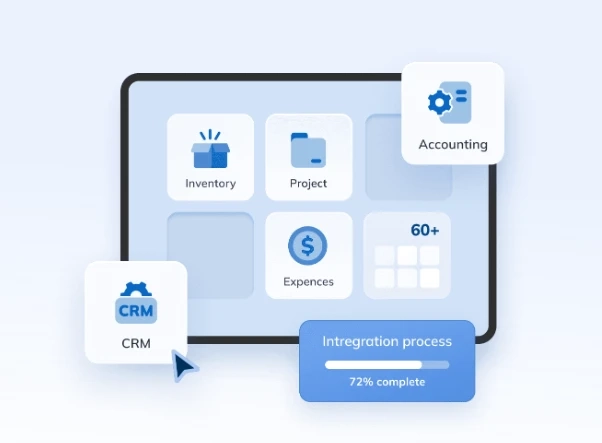In recent years, artificial intelligence (AI) has transformed from a theoretical concept into a practical tool powering solutions across diverse industries. From customer support and e-commerce to finance and healthcare, AI-driven systems have changed the way businesses operate. One of the most exciting developments in this realm is the emergence of the AI agent builder—a platform or tool that allows users to create autonomous AI agents capable of performing tasks, making decisions, and even communicating intelligently with users or other systems.
This article delves deep into the world of AI agent builders, exploring what they are, how they work, their key components, use cases, benefits, and future trends.
What is an AI Agent Builder?
An AI agent builder is a software platform or framework that enables the creation, training, and deployment of AI agents. These agents are designed to perform specific tasks autonomously or semi-autonomously, using a combination of machine learning, natural language processing (NLP), rule-based systems, and sometimes reinforcement learning.
Unlike traditional bots, AI agents can learn from data, adapt to new information, and interact in more complex, human-like ways. An AI agent builder provides a user-friendly interface, pre-built modules, APIs, and integrations to streamline the development process for both technical and non-technical users.
Key Components of an AI Agent Builder
To understand how an ai agent builder works, it's crucial to break down its core components:
1. Natural Language Processing (NLP)
NLP is essential for enabling AI agents to understand and respond to human language. It includes tasks like intent recognition, entity extraction, and sentiment analysis. Leading AI agent builders use advanced NLP models such as GPT, BERT, or proprietary engines to power conversational abilities.
2. Machine Learning Models
AI agents use machine learning algorithms to improve performance over time. They can learn from user interactions, data logs, and outcomes to enhance decision-making and personalization.
3. Task Automation Engine
This is the core of the agent's functional capability. It allows the agent to perform repetitive tasks such as data entry, scheduling, or responding to common customer queries. It often includes conditional logic, triggers, and workflow management.
4. Integration Framework
AI agents rarely operate in isolation. A good ai agent builder offers seamless integration with CRMs, ERPs, communication platforms, databases, and other business tools via APIs or built-in connectors.
5. User Interface and Design Tools
Modern AI agent builders include visual design interfaces to help users map workflows, define conversation paths, or set triggers and responses without writing complex code.
6. Analytics and Monitoring
Robust analytics dashboards help users track agent performance, analyze user behavior, and identify areas for improvement.
Use Cases of AI Agent Builders
The versatility of ai agent builder platforms makes them applicable across multiple industries. Here are some prominent use cases:
1. Customer Support Automation
AI agents can handle customer inquiries 24/7, resolve issues, and escalate complex problems to human agents when needed. This reduces response time and improves customer satisfaction.
2. Sales and Lead Generation
Conversational agents can qualify leads, book appointments, or suggest products, acting as the first point of contact for potential customers.
3. E-commerce Personalization
AI agents help users navigate products, recommend items based on past behavior, and assist with returns or payment processes.
4. Healthcare Assistance
Agents can schedule appointments, remind patients about medication, or answer general health-related queries, improving patient engagement.
5. Finance and Banking
Automated agents can assist with balance inquiries, fraud detection, and even basic financial advice.
6. Human Resources
In HR departments, AI agents can onboard employees, answer policy questions, and help manage payroll or leave requests.
Benefits of Using an AI Agent Builder
Implementing an ai agent builder brings numerous advantages to organizations:
1. Increased Efficiency
AI agents handle repetitive and time-consuming tasks, freeing up human employees to focus on more strategic work.
2. 24/7 Availability
Unlike human workers, AI agents operate around the clock, ensuring customer service is always available.
3. Cost Savings
By automating routine tasks, businesses can significantly reduce operational costs and reallocate resources more efficiently.
4. Scalability
As business needs grow, AI agents can easily be scaled to handle increased workloads without the need for proportional human resources.
5. Improved User Experience
Faster response times, personalized interactions, and round-the-clock support contribute to a superior user experience.
6. Data-Driven Insights
Through analytics, businesses gain valuable insights into user behavior and agent performance, enabling continuous improvement.
Leading AI Agent Builder Platforms
Several AI agent builders are dominating the market, each offering unique features and capabilities:
1. Google Dialogflow
A robust platform for building conversational agents powered by Google’s machine learning. It supports voice and text-based interactions and integrates well with Google Cloud services.
2. Microsoft Power Virtual Agents
A part of the Microsoft Power Platform, this tool allows users to create intelligent chatbots using a no-code interface.
3. OpenAI API + Custom UIs
For businesses that want to build agents using state-of-the-art language models like GPT, integrating OpenAI’s API into custom platforms is a powerful option.
4. Rasa
An open-source framework for developers to build contextual AI assistants using Python. It’s flexible and offers complete control over data and logic.
5. Botpress
An open-source platform that supports custom logic and integration with NLP engines, making it ideal for developers seeking flexibility.
6. Chatfuel & ManyChat
Primarily used for Facebook Messenger and social media automation, these tools are user-friendly and suitable for small to mid-size businesses.
How to Choose the Right AI Agent Builder
Choosing the right ai agent builder depends on your business needs, technical expertise, and long-term goals. Consider the following factors:
1. Ease of Use
If you lack technical expertise, opt for a platform with a no-code or low-code interface.
2. Integration Capabilities
Ensure the builder can integrate with your existing tools and platforms for seamless data exchange.
3. Customization
Look for platforms that allow customization in terms of workflows, conversation flows, and branding.
4. NLP Accuracy
Evaluate the NLP capabilities and see how well the agent understands and responds to user inputs.
5. Pricing
Check for transparent pricing models that fit your budget, and assess whether costs scale reasonably with usage.
6. Community and Support
A vibrant developer community and good customer support are invaluable when troubleshooting or seeking to expand functionality.
The Future of AI Agent Builders
The future of the ai agent builder market looks promising, driven by ongoing advancements in AI, machine learning, and human-computer interaction. Here are a few trends to watch:
1. Multi-Agent Systems
Rather than a single AI agent handling all tasks, we’ll see networks of specialized agents collaborating to perform complex workflows.
2. Emotionally Intelligent Agents
New research into affective computing is leading to emotionally aware agents capable of detecting and responding to user emotions appropriately.
3. Voice-First Interfaces
With the popularity of smart speakers, more AI agents will be optimized for voice rather than text.
4. Augmented Agents for Employees
Instead of replacing humans, AI agents will increasingly serve as intelligent assistants, boosting employee productivity and decision-making.
5. Vertical-Specific Solutions
We’ll see AI agent builders designed specifically for industries like legal, healthcare, or education, offering tailored modules and capabilities.
Conclusion
The rise of the ai agent builder signifies a shift towards more intelligent, efficient, and scalable digital operations. Whether you're a startup aiming to automate support or a large enterprise seeking to streamline internal processes, AI agent builders provide the tools to transform ideas into functional, intelligent agents. By embracing this technology, businesses can stay ahead of the curve, enhance customer experiences, and unlock new levels of productivity.



